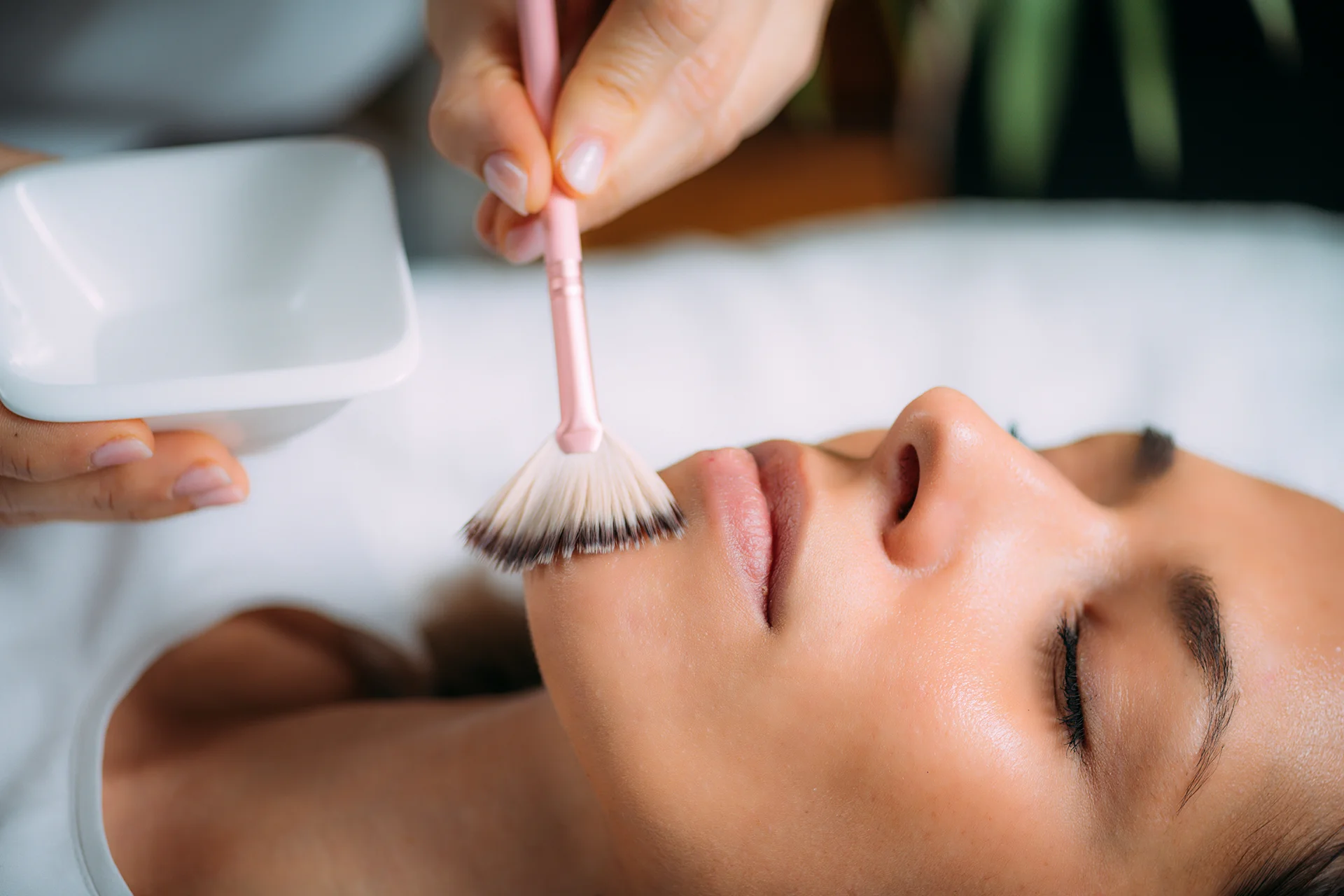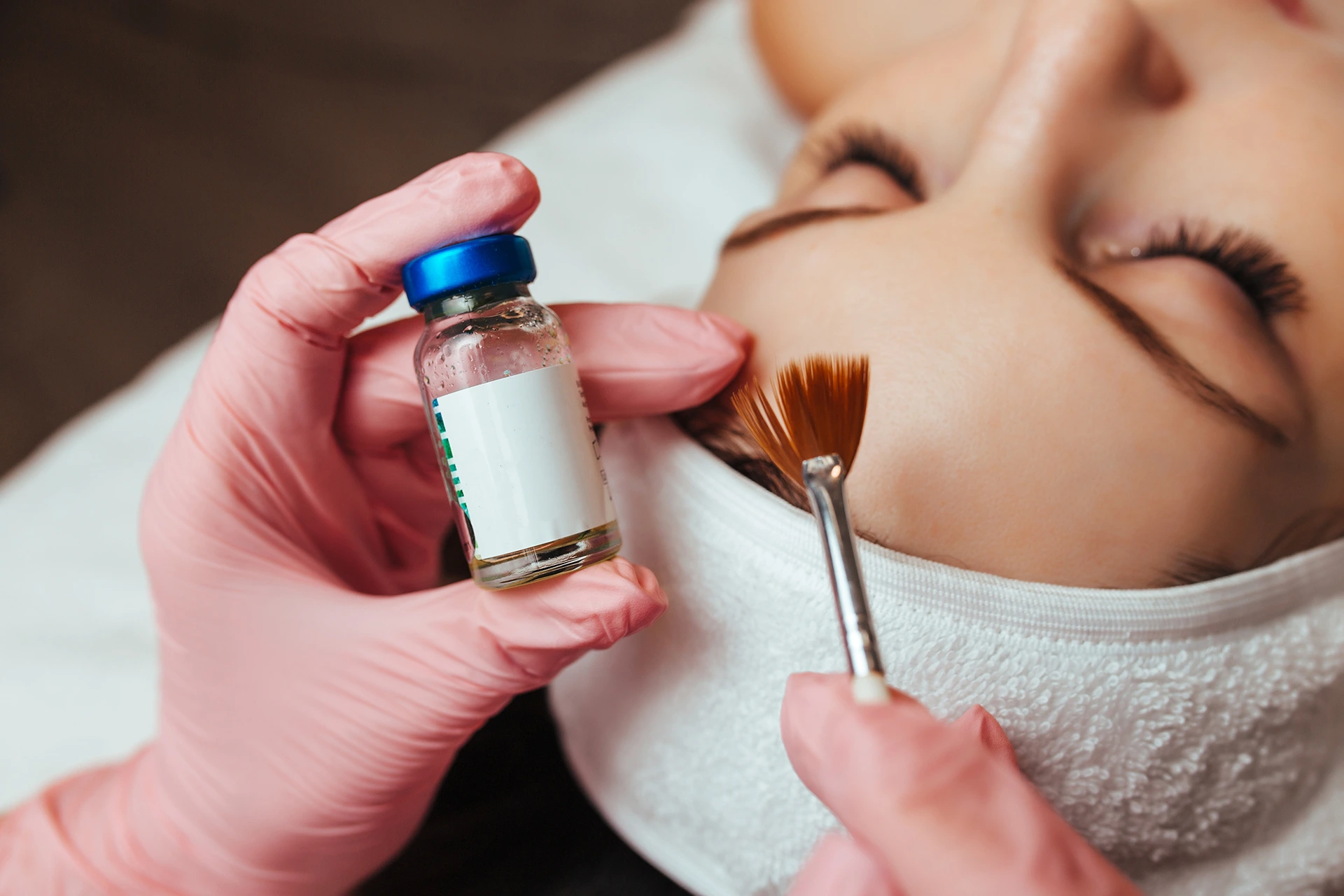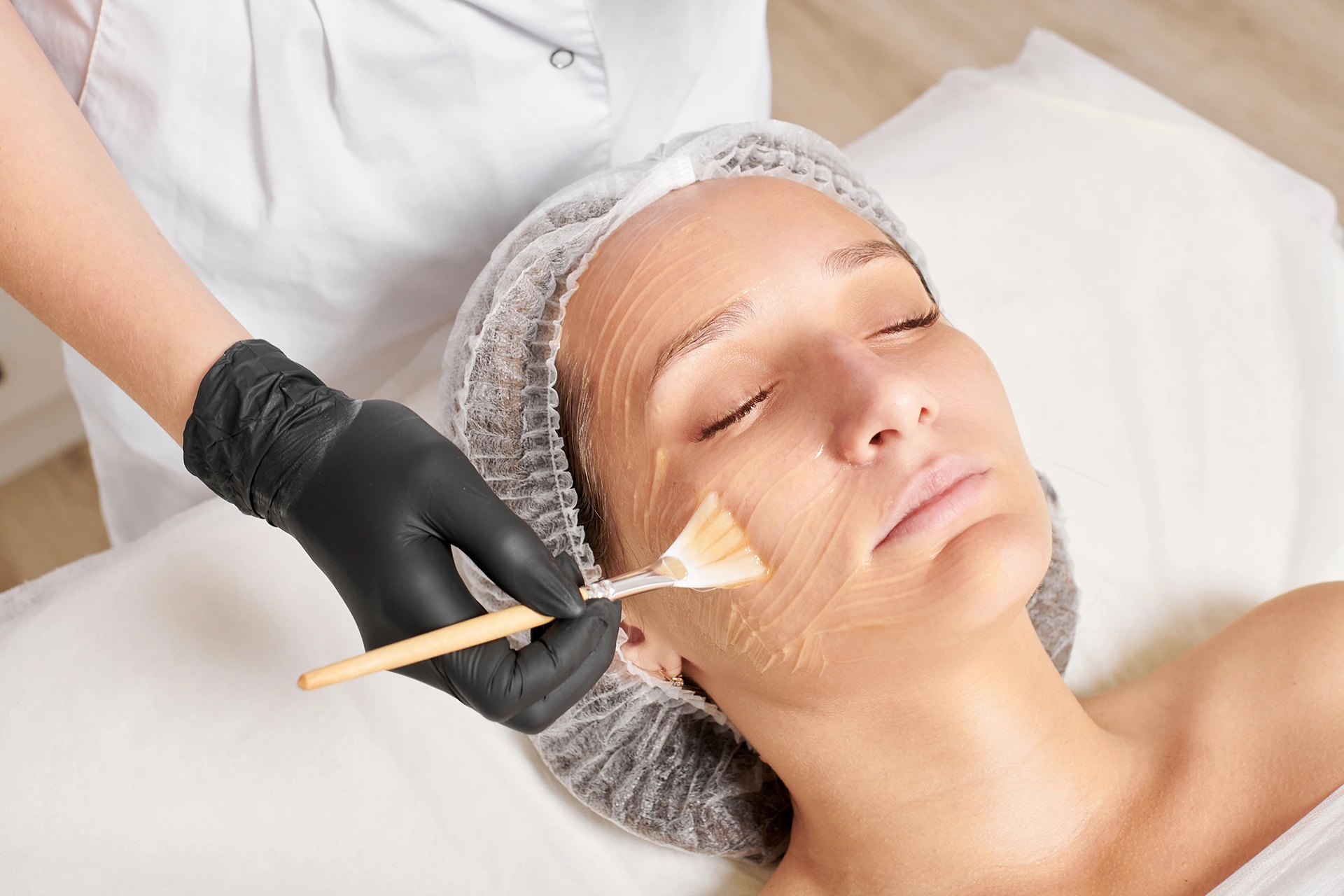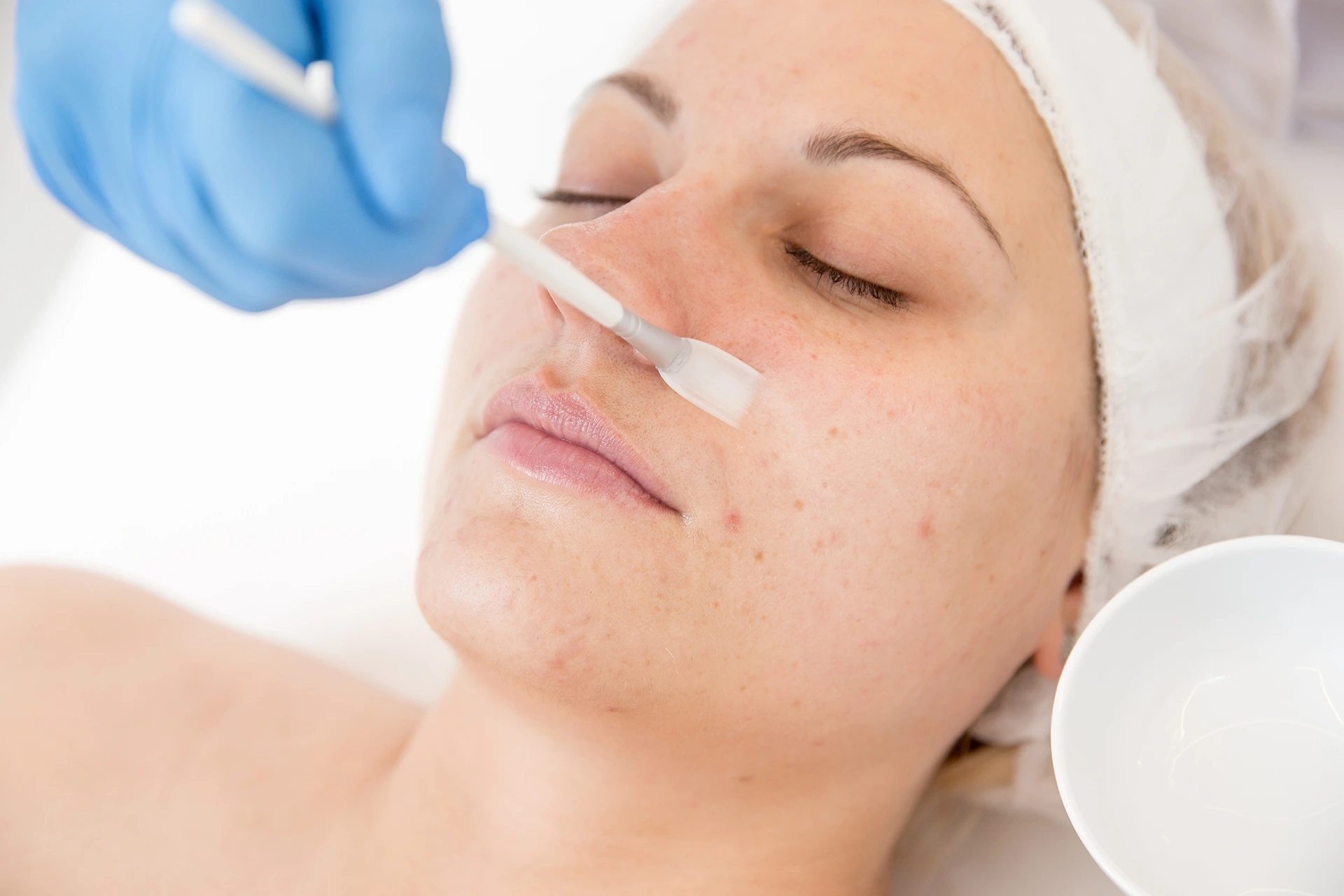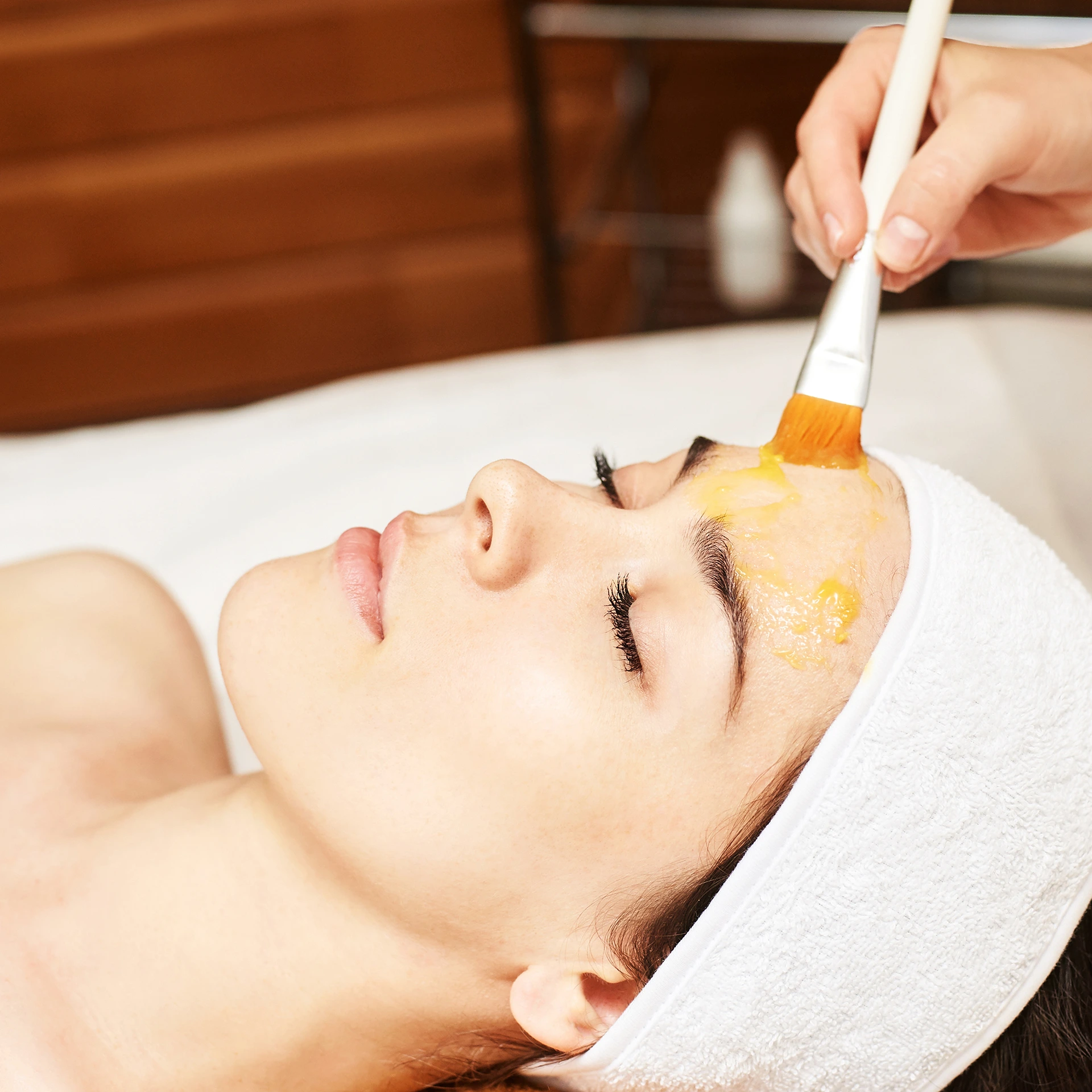Unraveling the Risks and Drawbacks of DIY Chemical Peel Treatments
Ever wonder if you could achieve spa-quality results at home without the hefty price tag? At-home chemical peels with ingredients like salicylic acid, glycolic acid, and lactic acid have become increasingly popular as they promise fresher, smoother skin without leaving your house.
The ingredients in these DIY peels do have benefits for exfoliating the skin and unclogging pores, but there are some hidden dangers to be aware of.
While at-home peels may seem low-maintenance, they actually require diligent care and an understanding of skin sensitivity.
For sensitive skin or those new to exfoliation, professional dermatologist-administered peels are safer, ensuring optimized results with minimal risks. At-home peels also lack the customized expertise and experience that comes with a professional.
Before you stock up on glycolic or start a salicylic acid routine, make sure you understand the potential drawbacks of DIY peels versus professional treatments. With the right knowledge and precautions, at-home chemical exfoliation can be done safely at home, but professional supervision is always the gold standard.
Potential Risks of At-Home Chemical Peels
While at-home chemical peels contain exfoliating ingredients like glycolic or salicylic acid, they often lack the concentration needed to deeply exfoliate the skin, especially for sensitive areas or skin types.
Insufficient Active Ingredient Penetration
These active ingredients have a hard time penetrating the outer layer of skin, leaving some of the deepest exfoliation and treatment unfinished. Sun damage, acne scars, melasma, and other skin issues affecting the dermis won’t see major improvement from DIY peels alone.
Skincare brands market their products as effective for all skin types, but the truth is they are rarely strong enough for serious skin concerns. A board-certified dermatologist can customize professional peels with higher active ingredient concentrations to reach multiple layers of skin, even for acne-prone, sensitive skin.
At-home peels may help keep your skin looking fresh between salon visits, but for deep exfoliation, professional treatments have no match. DIY peels will simply scratch the surface, leaving acne scars, age spots, and other issues largely unaddressed.
For acne-prone or sensitive skin especially, professional chemical peels under dermatological supervision are really the only way to fully reap the benefits of exfoliation without irritation or damage. At-home treatments may lead to further breakouts, sting from overly concentrated products, or superficial peeling that looks unnatural. When your skin deserves professional-grade results, at-home peels just won’t cut it.
Inadequate Concentration and Potency
At-home chemical peels rarely provide the same concentration of acids as professional treatments, limiting their effectiveness. For issues like deep wrinkles, age spots, and scars, higher potency ingredients like trichloroacetic acid (TCA) cross are required.
While light, daily use of at-home peels is generally fine to maintain exfoliation, overuse or inconsistent application can actually damage the skin.Some DIY peels promote using their product as a ‘daily peel’, but frequent use can strip the skin of its natural oils and cause irritation.
The hope of quick fixes also leads some to misapply peels, leaving them on for too long or using them when skin is already damaged. This can lead to cracked, inflamed skin and unsightly peeling, damaging skin tone, pores, wrinkles, dark spots, and more.
Risk of Overuse or Misapplication
Professional chemical peels are carefully calibrated by a dermatologist to achieve optimal results while protecting the skin. They account for individual skin conditions and sensitivity to ensure a customized, controlled treatment.
At-home peels, on the other hand, assume a ‘one-size-fits-all’ approach that often does more harm than good, especially with improper technique or overuse.
At-home chemical peels may seem low-maintenance and low-risk, but inadequate concentration, misapplication, and overuse can definitely lead to skin damage. For this reason, professional peels supervised by a board-certified dermatologist are superior, as they deliver real results with minimal risks to skin health and appearance.
Limitations of At-Home Chemical Peels
Insufficient Active Ingredient Penetration
At-home peels lack the strong concentration of acids needed to deeply exfoliate sun-damaged, acne-prone or sensitive skin. Professional peels are required for optimal penetration and treatment of issues affecting deeper layers of skin.
Lack of Customization and Expertise
At-home peels provide a generalized, one-size-fits-all approach rather than customized treatment plans tailored to individual skin concerns, needs and sensitivity. Only a board-certified dermatologist has the expertise to properly assess skin conditions and determine the safest, most effective peel for targeted issues.
Limited Long-term Benefits
While at-home peels may provide temporary glow or unclogged pores, they are rarely strong enough to comprehensively treat more serious skin concerns like deep wrinkles, acne scars, age spots, or uneven skin tone in the long-run. For these issues, professional peels harnessing higher acid concentrations and stronger solutions are needed to achieve dramatic, long-lasting improvements at deeper levels, including smaller pore sizes, smoother skin texture and an anti-aging benefit.
When to Choose Professional Chemical Peels

To determine if professional chemical peels are better suited than at-home treatments, consider the following indicators:
- Severe or stubborn skin concerns like deep wrinkles, age spots, scars or melasma. Professional peels use higher acid concentrations to penetrate deeper layers for more comprehensive repair.
- Sensitive skin or sensitivity to exfoliation. Professional peels are carried out under medical supervision to carefully monitor sensitivity and ensure optimal tolerance. At-home peels lack this guidance, increasing irritation risk.
- Complex skin conditions such as severe acne, Rosacea or Eczema. Professional dermatologists have the expertise to properly diagnose and treat these conditions. At-home peels provide only superficial relief, not treatment.
- Severe sun damage or signs of precancerous lesions. Professional dermatological evaluation and stronger medical-grade peels are required to thoroughly exfoliate sun-damaged skin while screening for skin cancer. At-home peels cannot replicate this.
- Desire for dramatic, immediate results. Professional options include stronger peels like phenol croton oil to achieve powerfully transformative, rejuvenating results within a single treatment. At-home peels provide only gradual, subtler changes over multiple uses.
Types of Chemical Peel
| Type | Description |
| Superficial peels (alpha hydroxy acids) | Best for mild exfoliation and brightening. Can be done at-home or by a dermatologist. |
| Medium peels (beta hydroxy acids) | Improves wrinkles and age spots. Requires dermatological administration due to increased potency. |
| Deep peels (Trichloroacetic acid) | Provides dramatic resurfacing and repair. Only performed under medical supervision using precisely calibrated acid concentrations and solutions. |
If severe or complex skin concerns, sensitivity, sun damage or desire for immediate drastic results exist, professional chemical peels under dermatological supervision are likely the safer, more effective choice.
Professional peels achieve dramatically superior outcomes using higher acid concentrations and customized, medically-guided treatment plans. For comprehensive skin rejuvenation and repair, professional peels have no match.
Advantages of In-Office Chemical Peels
Professional chemical peels provide several key benefits over at-home treatments:
- Customized, concentrated solutions at higher potencies. Professional peels utilize stronger chemical solutions to exfoliate deeper layers and provide targeted therapy for specific skin concerns. At-home products are limited to lower concentrations for general use.
- Monitoring and adjusting. A dermatologist can constantly monitor the skin’s sensitivity and response to carefully control the strength and duration of acid action, preventing damage. At-home peels provide no such monitoring or ability to quickly adjust the treatment.
- Prevention of complications or irritation. A dermatologist’s medical expertise helps identify conditions like underlying sensitivities that could lead to problematic irritation, peeling or scarring with at-home use. Professional guidance mitigates these risks.
- Dramatic, immediate results. By harnessing higher acid levels, professional peels can provide powerfully transformative, rejuvenating results within a single treatment. At-home peels produce only gradual changes over repeated use.
- Long-term, comprehensive care. Dermatologists develop customized treatment plans including medical peels, laser therapies, injections and more to thoroughly address skin concerns and prevent future issues. At-home products provide no such holistic, long-term management.
Consulting with a Dermatologist
Seeking advice from a board-certified dermatologist is critical before pursuing any chemical peel:
| Benefits | Description |
| Proper diagnosis | Only a dermatologist can definitively diagnose skin conditions and determine underlying causes to guide safe, effective treatment. At-home peels lack diagnosis and may irritate or damage skin if an issue is missed. |
| Tailored recommendations | Treatment plans are customized based on skin type, condition, sensitivity and goals. At-home peels provide a ‘one-size-fits-all’ approach which often does not meet complex needs or properly accommodate differences in skin types from sensitive to tough. |
| Higher potency options | For severe concerns, a dermatologist can recommend medical-grade options with higher acid concentrations as needed for deeper exfoliation and dramatic improvement. At-home peels never achieve these depths. |
| Avoiding complications | A dermatologist accounts for conditions like diabetes, acne, rosacea or sun damage to determine if a peel is even appropriate and safe, and the level of acidity that can be tolerated. At-home products have no such screening. |
| Monitoring for precancerous lesions | Professional dermatological evaluation and stronger medical peels are needed to thoroughly exfoliate sun-damaged skin while screening for skin cancer, known as melanoma or non-melanoma. At-home peels cannot replicate cancer screenings or matching procedural depths. |
For safe, effective and comprehensive chemical exfoliation, consulting with and undergoing treatment from a board-certified dermatologist is superior to at-home chemical peels. A dermatologist can customize concentrated solutions, precisely monitor sensitivity, provide dramatic immediate results or comprehensive long-term care, accommodate complex needs, spot precancerous changes, and more—all to optimize outcomes while mitigating potential damage. For arguably any skin concern, medical supervision is key. At-home peels simply cannot match these professional standards, expertise or ability to transform skin health.
Do Chemical Peels the Safe Way
Don’t risk your skin’s health with at-home chemical peels. Trust the experts at CosMedic LaserMD to provide personalized, professional chemical peel treatments tailored to your unique needs.

